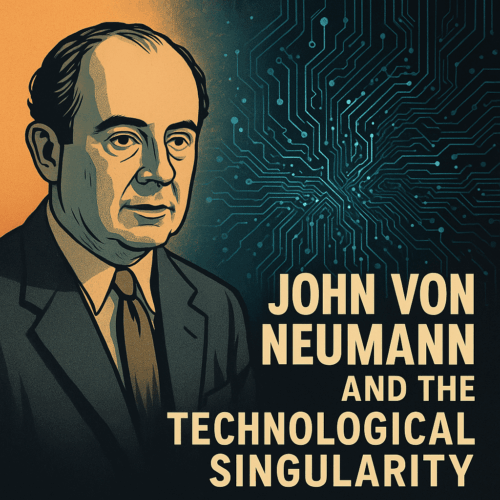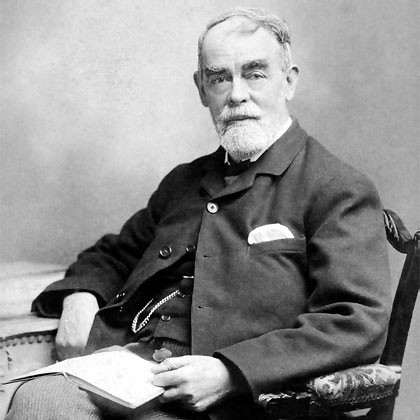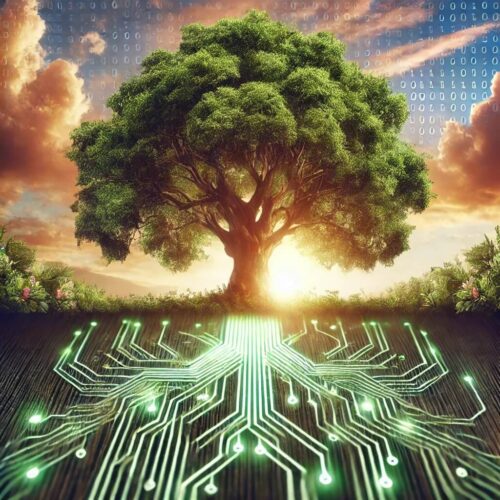The One God Hypothesis, a Post-Singularity Scenario
 The One God Hypothesis is a potential outcome of the technological singularity/transhumanist movement which I have devised. I have written it as a challenge to the attitude expressed by many singularitarians that technology will somehow enable us to live in a post scarcity world. If anything, it shows that scarcity and competition could potentially become more severe in a posthuman society.
The One God Hypothesis is a potential outcome of the technological singularity/transhumanist movement which I have devised. I have written it as a challenge to the attitude expressed by many singularitarians that technology will somehow enable us to live in a post scarcity world. If anything, it shows that scarcity and competition could potentially become more severe in a posthuman society.
In summary, the One God Hypothesis describes a paradigm in which the best course of action for each and every transhuman is to eliminate all life forms with the exception of themselves, thereby ensuring that they will be the only remaining sentient being, i.e. the ‘One God’.
The One God Hypothesis is based on three arguments. The first is that scarcity and competition are physical properties, not biological ones, meaning that scarcity and competition will still be present in a posthuman society. The second is that humans in their present state require other sentient beings to meet their needs. The third is that transhumans will not have to rely on other sentient beings to meet their needs.
1st Argument: Scarcity and Competition are Physical Properties of the Universe that Affect both Humans and Transhumans
It would seem that sentient beings require some type of substrate which houses their sentience. It would also seem that this substrate requires a supply of energy to perpetuate the sentience. For a simplified example of what I am describing, consider a human being. The brain serves as the substrate upon which consciousness arises. When energy is supplied to the brain in the proper amounts, sentience exists. When the energy supply is cut off, such as during suffocation or heavy bleeding, sentience stops.
The point I am trying to make is that sentience is dependent on two components (substrate and energy), both of which are subject to scarcity according to the laws of thermodynamics. In the case of the substrate, extropy (i.e. ‘order’, the converse of entropy) is required. The human brain is made up of a relatively simple list of necessary elements (C, H, O, N, Na, K, etc.), but unless those elements are arranged in an orderly and meaningful manner, the brain will not serve as a substrate for sentience. The 2nd law of thermodynamics dictates that extropy exists in a finite quantity and is constantly decreasing. It also dictates, in conjunction with the 1st law of thermodynamics, that all the usable energy in the universe is also a finite quantity that is constantly decreasing.
By now it should be apparent that scarcity is a property of physics, not biology. There is no reason to believe that transhumans will somehow be immune to this. Furthermore, I will try to explain in the next two arguments why competition among transhumans is a very real possibility.
2nd Argument: Humans in Their Current State Require Other Sentient Beings to Meet Their Needs
Humans are emotional beings with complex needs that require other sentient beings (primarily other humans) in order to be satisfied. Death is a constant cause of concern for humans. Historically there has not been a known cure for aging, so people have had to resort to living on through their offspring created via sexual reproduction. This in itself requires the cooperation (or at least coercion) of another sentient being as humans cannot reproduce asexually. Every human in existence began as an infant which was totally helpless and unable to survive without at least its mother.
This dependency carries on into adulthood. Very few humans have the means to survive totally independent of any other sentient beings. Those that somehow do are unlikely to reproduce and will thus not live on through their offspring. Even in this instance they are not totally independent of other sentient beings as they owe much of their survival skills to those that raised them. Nearly everybody requires some form of social interaction, even if their physical needs are being met.
3rd Argument: Transhumans will not Require the Cooperation of any Other Sentient Beings in Order to Meet Their Needs
Through hardwiring of one’s brain (or whatever substrate is used for consciousness) transhumans will have the ability to create whatever emotional state they desire without having to rely on other sentient beings. The satisfaction created through hardwiring can surpass that created through the cultivation of interpersonal relationships. Transhumans will be of sufficient intelligence where they can fool themselves into valuing these hardwired emotions as if they arose from relationships. Having their emotional needs satisfied independently, there will be no logical incentive for transhumans to rely on other transhumans. Transhumans can utilize robotics controlled through a combination of their own intelligence and artificial intelligence for the resource procurement necessary to perpetuate their own sentience. These robots will be much more likely to serve the individual’s best interests than other transhumans which are prone to selfish and irrational actions.
Transhumans will still be in a state of competition with one another as stipulated in the first argument, and their emotional and physical needs will be satisfied independently. As hardwiring will allow transhumans to achieve states of euphoria currently unfathomable by humans, it would seem that it is in their best interest to maintain this high as long as possible. And since any guilt associated with violence and murder can be hardwired out of one’s brain, one must ask what the incentive is for transhumans to allow other transhumans to live? After all, other transhumans merely represent competition for scarce resources, the consumption of which will decrease the time that can be spent maintaining their hardwired high.
The ‘One God Hypothesis’
A war could break out where all transhumans are in competition with one another to establish themselves as the last remaining sentient being, i.e. the ‘One God’, thus enabling the individual to have full access to the remaining finite resources. This could potentially be the worst war in history. Counter to hardwiring’s ability to produce unfathomable highs, it could also be used to produce new lows. Forms of torture may be invented which completely surpass that previously known by humans.
In Conclusion
The One God Hypothesis is merely speculation. I am not saying with 100% certainty that it is going to happen, just that it could potentially happen. At best it will serve as the groundwork for future discussions. Predicting the actions of supremely intelligent transhumans is very difficult to do. That is why I think it is important to lay the groundwork principles that we know, or at least strongly suspect, will define posthuman society (such as the inevitability of scarcity). Keep in mind that the limitations of the One God Hypothesis apply to all other post-singularity predictions as well, especially the idea that technology will allow us to live in a post scarcity world.
About the Author:
Matt Frohlich is a scientific researcher who writes about subjects related to the technological singularity in his spare time.
is a scientific researcher who writes about subjects related to the technological singularity in his spare time.








